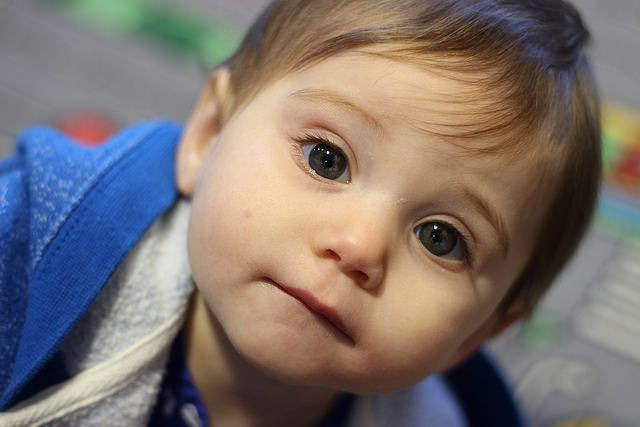Baby Talk Patterns Give Clue Into Early Language Acquisition: Children Use Previous Vocabulary To Help Learn New Words

Although a toddler may not be able to dress himself or tell the difference between food and garbage, he can surely learn an entire language without much help. The way children soak up languages has long fascinated researchers, and a recent study has shed light on the captivating technique that toddlers use to build their impressive vocabularies.
My first word was “cookie.” Obviously, I had my priorities straight from a young age. My younger brother, on the other hand, chose to one-up me and go for “dinosaur.” He’s now studying engineering at Cornell University. While “first word” recaps make for good stories, according to the recent study, what my brother and I chose for our venture into the linguistic world had an impact on how we went on to develop the rest of our vocabulary.
The study, currently published in the journal Developmental Science, found that young children use words they already know to help recognize links between new word meaning and thus build their vocabulary. For example, learning "Mama" and "Dada" would help the child learn the words "sister" and "brother," and knowing "toy" would make learning words such as "doll" or "ball" much easier.
"Children start to say words somewhere around their first birthday," said lead researcher Arielle Borovsky in a statement. "They're not learning words like 'stockbroker' or 'bifocals.' That's common sense, but what's really new is that they are learning these words in clusters and there might be some words that are easier for children to learn and some that are harder."
In order to investigate this concept, Bovovsky and her colleagues studied the language development of 32 2-year-old children. The researchers tested the children’s vocabulary by using word-association computer programs which monitored eye movement to note children recognized certain terms. In addition, the team interviewed the parents on their children’s language use, and also attempted to teach the children six new words.
"Although each child learned the same six words, we used their individual vocabulary survey to identify which three words they already had many neighbors in their vocabulary, and which three had the fewest," Borovsky said.
Results confirmed that mental categorization played an important role in early word acquisition. Knowing how children learn language can be useful both for parents attempting to teach their children new words and for speech therapists and special education teachers working with children who have language development problems.
Other recent research into early language acquisition has revealed parents can help expand their children’s vocabulary by favoring complex sentences when speaking to them.
“It’s not just about shoving words in,” Kathryn Hirsh-Pasek, a professor of psychology at Temple University and lead author of the study, told The New York Times. “It’s about having these fluid conversations around shared rituals and objects, like pretending to have morning coffee together or using the banana as a phone. That is the stuff from which language is made.”
It’s not just parents’ words that can help build children’s vocabularies; a 2013 study found that parent’s non-verbal cues had as much as a 22 percent influence on their children’s language learning. According to the research, children whose parents supplemented language learning with visual cues, such as showing an example of the target word, were better able to read context clues and developed identification skills from an earlier age.
Source: Borovsky A, Ellis EM, Evans JL, Elman. Lexical leverage: category knowledge boosts real-time novel word recognition in 2-year-olds. Development Science. 2015



























